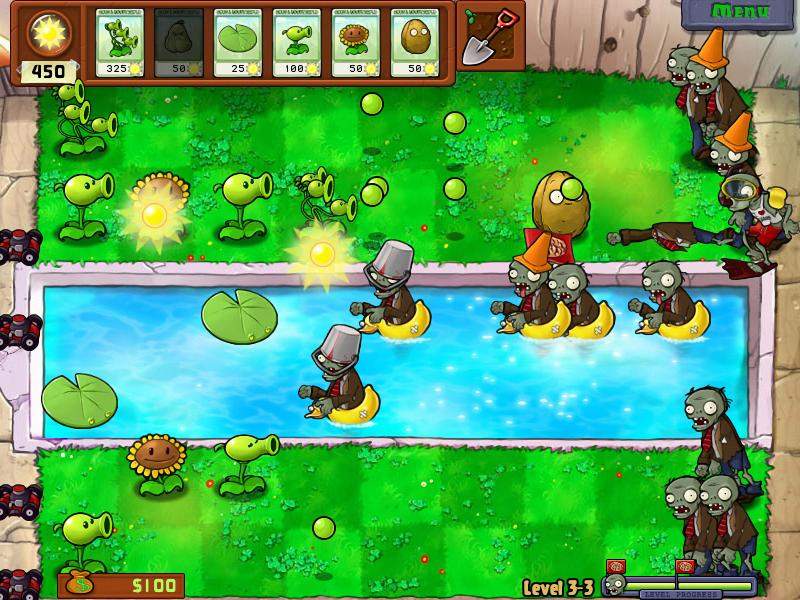This week, I’ve been reading Sheri Graner Ray’s Gender Inclusive Game Design, a book that, in 2003, outlined some of the challenges the industry was facing in terms of expanding the market and being more welcoming to female gamers. Tracy Lien’s 2013 look at early trends in video game marketing offers evidence about how the male-dominated market audience was born, from the business perspective, while Gender Inclusive Game Design includes a great deal of focus on how men and women are socialized, how they approach tasks, games, and more, as well as what might have been welcoming — or not — to women in terms of gameplay and presentation. Ray’s book is a little outdated now, thanks to some of those changes, and was written for a games industry not dominated by the platforms of social media, so the volume (and weight) of voices outside male-dominated arenas was different. We were different. In the book’s introduction, however, she raises a simple point that still merits exploration:
So somewhere, somehow, a disconnect is occurring that is keeping females away from traditional computer games.
We’re here, in games, in gaming communities, performing criticism, working in design, participating in the culture, moreso even than when this book was researched and written. We’re here and sometimes we last, we succeed, like Ray herself. Like Brenda Romero, like Jade Raymond, like scholar Adrienne Shaw, like our own Samantha Blackmon.
And sometimes we are Samantha Allen. Sometimes we are Leigh Alexander or Jennifer Hepler. We are here until we stop, until we decide to move on to other opportunities, because sometimes it’s easier to stop, for whatever reason.
A few days ago, we learned teaching and other opportunities for our graduate students were going to be slashed, thanks to budget cuts. Why budget cuts? Why the loss of professionalization opportunities? Are we struggling for money?
Nope; this is somehow supposed to provide us with a better graduate education experience. Meanwhile, I’m trying to scrape up the funds to present at conferences; meanwhile I lost a position that would have paid my daughter’s monthly childcare bill. Without childcare for my daughter, I don’t have a graduate school experience at all, much less a better one. Don’t worry, we’re told. This is going to streamline and improve graduate education. After all, we’re going to get a few more funded research assistantships. That’ll help, right? Of course, that will require our faculty, who will now have to teach more to pick up the classes that were taken away from us, to have the time to develop those new research positions.
“Better experience.” Sure. In another discipline, this would be great. But we’re English, we’re rhetoric and composition. So much of our work happens in and around the classroom. We need to teach. It’s who we are and what we do. Without that, without the necessary experience to talk pedagogy, without that level of professionalization, we lose what we’ve worked for so many years to build: a leading program that produces excellent teachers and scholars. And we’re losing it to a one-size-fits all approach that utterly ignores what’s required for good scholarship in our field.
Cut down, too, is our first-year writing program, with more cuts in the future. Writing instruction, that old thing? Pshaw. Why on earth would we want to graduate students who’ve been trained in that?
I’ve never felt so undervalued in my life. I lost a position I cared about, I am losing and will lose opportunities to present the work I’m doing at national and international conferences, and I’m told that this work of education we do, to create better graduates, doesn’t matter.
This is a better graduate experience.
I’m going to break the rules here: I’m going to talk about victimhood.
We’re not supposed to use the v-word. It’s a good system our detractors have developed, a self-perpetuating monstrosity. If we talk about being harassed or otherwise devalued, we are “professional victims,” just doing it for the hopes of monetary support through services like Patreon. No one has to listen to a professional victim. They don’t matter; they want attention, sympathy; they have nothing to offer. But if we don’t talk about it, if we don’t come together and discuss reasons, treatment, behaviors, trends, then how do we fix it? How do we cope?
I’m not going to include the tweets I screencapped and showed to students in a presentation today. One of them featured blood and miscarriage jokes about a woman in games, and it was close to too much for me, and at this point, that line is hard to find.
Sometimes, I find that line. Sometimes, what I hear and see crosses it.
When I tell my students what I do, I’m met with a variety of responses. Some think it’s neat to study games. Others don’t care. But there’s always someone who gives me that look and starts asking what my favorite games are. I know that look. It colors the question; it’s not a question, in that moment, between people who share a hobby. It’s a test. I know this test. It’s the the same test as when I write something and skip a detail someone else considers essential and dissenters rise from the ether, crowing about fake gamers, or when someone disagrees vehemently, but considers their own opinion the One True Truth, which makes me wrong, which means I’m not a gamer. It always comes back to who is and isn’t a gamer.
Usually, these tests are conducted by men, the boundaries constructed by them. Sometimes it is not men. Our world is not the world of Gender Inclusive Game Design, and yet in the wake of another DoA Xtreme Beach Volleyball “scandal” — Ray references the first release in that spin-off franchise in her book — our world looks much the same at times.
I am a critic and scholar. I have opinions, same as anyone. And while responses, comments, communities, forums, etc., in the gaming community are often tinged with vitriol, the vitriol directed at drawing gendered lines has always been just a little different.
Friday, when my students and I stepped into our computer lab, a young man was working in the space. He asked to stay, but we had class; I told him no. He asked again; again, I said no. He responded with immediate vitriol, screaming gendered insults, shouting his entitlement, his needs, while my students looked on, appalled. I walked out. I sought help, or a witness, someone to be there just in case. He kept on as he slowly, angrily collected his things, as he left, saying I “couldn’t handle it.” I’m not sure what “it” is, but I’m tired of people who don’t know me telling me what I am capable of, and what I am not.
I am trying to imagine that kind of impersonal-but-so-personal attack situation centered around a male colleague, and can’t. Not like that. It was a hell of a thing.
Saturday, when I was streaming for our latest charity effort, someone strolled into my channel and informed me that “adults don’t play games.” Obviously, this is not the kind of opinion I have to take to heart; certainly it wasn’t offered by a peer. But after I booted the interloper (because why deal with it?), and after I finished, I lay on my sofa nursing a beer, asking myself if it would always be like this. If simply existing would always be a fight. Eh, thought I, it’s not so bad to be a fighter. To try to change an industry, a community, an institution of higher learning, the world. What better way to spend one’s life?
But it’s a lot, you know? It’s a fight to be recognized as a gamer, a scholar, a critic. It’s standing with my friends as they fight not to be considered hostile spaces in their own bodies. It’s fighting for my place at the table when I am a mother, and shouldn’t I be home taking care of my babies? It’s fighting for my work, for my concern for students. It’s fighting to be recognized for what we study, for what we do, for what it means to work in “rhetoric and composition.” If I had a few bucks for the times I’ve talked to someone who assumed all English students studied Shakespeare and wrote five-paragraph essays, or for the times someone scoffed at rhetoric and composition as “not a real discipline,” I might be less concerned with pay cuts. And sure, everyone struggles with this. My partner can’t explain what he does in a sentence; he operates in paragraphs, dropping buzzwords related to sustainability. But no one tells him that anyone can design a net-zero house. Often, I’m told that just anyone can teach writing.
But it’s never one thing. It’s all those things, those intersections of doubt and challenge, everything. Sometimes it’s every day. And we are here, fighting, until maybe the day comes when we are not. When we turn in our notices. When we leave to pursue other opportunities.
Today, I’m here.




